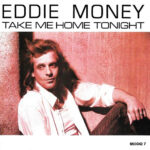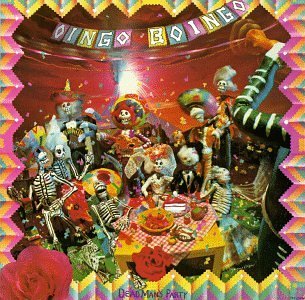 Synths shimmered, MTV roared, and hairspray ruled the airwaves—then came Eddie Money, the blue-collar rocker from Long Island, reminding everyone that heart and hooks still mattered. “Take Me Home Tonight,” released in 1986, wasn’t just another pop-rock anthem of the Reagan decade. It was a comeback, a reinvention, and a love letter to rock’s roots. Mixing nostalgia with modern production, the song became a cultural bridge between the glory days of classic rock and the glossy pop era that defined the mid-’80s.
Synths shimmered, MTV roared, and hairspray ruled the airwaves—then came Eddie Money, the blue-collar rocker from Long Island, reminding everyone that heart and hooks still mattered. “Take Me Home Tonight,” released in 1986, wasn’t just another pop-rock anthem of the Reagan decade. It was a comeback, a reinvention, and a love letter to rock’s roots. Mixing nostalgia with modern production, the song became a cultural bridge between the glory days of classic rock and the glossy pop era that defined the mid-’80s.
The Resurrection of Eddie Money
Eddie Money’s career had already experienced both the highs of arena stardom and the lows of self-destruction by the mid-1980s. Known for his raspy voice and street-smart charisma, Money burst onto the scene in the late ’70s with hits like “Two Tickets to Paradise” and “Baby Hold On.” But by the turn of the decade, his fame had dimmed under the weight of substance abuse, legal troubles, and changing musical tides. The dominance of New Wave and synthpop left many rockers behind.
“Take Me Home Tonight” changed everything. With its irresistible blend of pop-rock energy and R&B nostalgia, the single pulled Money back from the brink and introduced him to a new generation of fans. The song reached No. 4 on the Billboard Hot 100, revitalizing his career and earning him a Grammy nomination. More than a hit—it was a redemption song that reestablished Eddie Money as one of rock’s enduring voices.
A Chorus That Echoed Across Generations
The secret weapon of “Take Me Home Tonight” was its chorus—a soaring, unforgettable hook featuring Ronnie Spector of the Ronettes singing the immortal line, “Be my little baby.” That lyric wasn’t just a catchy throwback—it was a stroke of genius. Spector, a symbol of the early ’60s girl group era, had been out of the public eye for years. Her voice on the record didn’t just add authenticity; it linked the song to rock’s golden age.
Producer Richie Zito, along with songwriter Mike Leeson and others, envisioned “Take Me Home Tonight” as a modern classic with roots in the past. Eddie initially resisted the idea, fearing the nod to “Be My Baby” would feel gimmicky. But once Ronnie Spector agreed to sing on it—her first major recording appearance in nearly two decades—it became electric. Her smoky vocals gave the song a nostalgic ache that balanced Money’s passionate delivery.
This duet wasn’t just collaboration—it was resurrection for both artists. Spector’s cameo reignited interest in her career, and her presence gave the song emotional gravity that made it stand out in the shiny, synth-driven landscape of the mid-’80s.
The Sound of 1986, with a Soul from 1963
“Take Me Home Tonight” was crafted with precision to sound modern but timeless. Zito’s production shimmered with the era’s signature polish—punchy drums, bright guitars, and just enough synthesizer to stay contemporary. Yet beneath the glossy surface was the heart of classic rock: raw emotion, driving rhythm, and a melody built for radio singalongs.
The song’s opening hook—a staccato guitar riff followed by Money’s urgent plea, “I feel a hunger, it’s a hunger…”—set the tone instantly. It was about longing, about that magnetic pull between two people at the end of a long night. The song pulsed with anticipation and energy, capturing both the desperation and excitement of connection.
In that way, “Take Me Home Tonight” embodied the tension of the decade itself: modern but nostalgic, polished yet heartfelt. It was a song you could dance to at the club and still crank up while driving down the highway with the windows rolled down.
The MTV Moment
By 1986, MTV had become the gatekeeper of musical success, and Eddie Money knew it. The music video for “Take Me Home Tonight” became one of his most iconic—featuring neon lights, moody nighttime shots, and the unmistakable swagger that Money always carried. The video showcased him as both a rock veteran and a contemporary hitmaker, balancing grit with glamour.
Ronnie Spector’s appearance was minimal but powerful. Her presence felt ghostly—almost mythic—appearing like a spirit from rock’s past blessing the new generation. For audiences raised on Duran Duran and Madonna, seeing a legend from the 1960s alongside a revitalized rocker like Money was a rare treat. It made “Take Me Home Tonight” feel larger than life, like a moment when decades of rock history briefly converged.
A Song About Desire and Redemption
Lyrically, “Take Me Home Tonight” was deceptively simple, yet profoundly relatable. It captured a universal feeling—the yearning for intimacy, for validation, for connection. Eddie’s performance gave it authenticity; he wasn’t singing from a place of bravado but vulnerability. This wasn’t a teenage anthem—it was an adult’s confession.
Coming from an artist who had been through addiction, career setbacks, and personal turmoil, the line “I can feel your heartbeat faster” felt like more than romantic tension—it was symbolic of his own reawakening. He wasn’t just singing to a lover; he was singing to life itself, asking to be taken home, to be given another chance.
That’s part of what made the song resonate so deeply. It worked as both a danceable pop hit and a statement of survival. It was about finding joy again after losing it, about letting music—and love—pull you back from the edge.
Ronnie Spector: The Heart of the Song
Ronnie Spector’s role in “Take Me Home Tonight” deserves special recognition. Her participation was not just a feature—it was the song’s emotional core. After escaping the abusive control of her former husband, producer Phil Spector, Ronnie had retreated from the spotlight for years. Eddie Money and producer Richie Zito convinced her to record again, assuring her that the world still wanted to hear her voice.
When she finally sang the line “Be my little baby,” the moment became transcendent. It wasn’t just a callback to the Ronettes’ hit—it was a reclaiming of power, a revival of spirit. Listeners who knew her story could feel the emotion layered beneath the nostalgia.
That decision turned “Take Me Home Tonight” from a good pop song into a great one. It became a dialogue between eras, between innocence and experience, between rock’s past and its present.
Cultural Impact and Legacy
By the end of 1986, “Take Me Home Tonight” had become one of the defining songs of the year. It helped push Eddie Money’s album Can’t Hold Back to platinum status and reestablished him as a fixture of rock radio. The track bridged generations, appealing to older fans who loved the Ronettes while also connecting with younger listeners raised on MTV pop.
But beyond the charts, the song left a cultural footprint that extended far into the decades to come. It’s been featured in countless films and television shows, from Family Guy to Supernatural, usually as shorthand for ’80s nostalgia, late-night romance, or the thrill of rediscovery. Its inclusion in The Office and Take Me Home Tonight (the 2011 comedy named after the song) introduced it to a new audience who may not have even been born when it first hit the airwaves.
The song’s influence can even be felt in the way later artists approached retro collaborations. Pairings like Lady Gaga and Tony Bennett or Mark Ronson and Amy Winehouse owe something to the magic that “Take Me Home Tonight” proved possible—a bridge between eras that celebrates both past and present.
A Career Reborn
For Eddie Money, this song marked the second act of his career. He continued to score hits like “I Wanna Go Back” and “Walk on Water,” but “Take Me Home Tonight” remained his defining moment. It symbolized resilience—the idea that even after losing it all, you could still climb back to the top with the right song and the right attitude.
Money carried that same energy into his live performances for decades. The song became a centerpiece of his concerts, a crowd favorite that never lost its spark. Fans would sing along to every word, and when the chorus hit, you could feel generations uniting in one shared moment of joy.
Even after his passing in 2019, “Take Me Home Tonight” endures as his anthem—a perfect encapsulation of who Eddie Money was: flawed, fun, passionate, and undeniably real.
Why It Still Matters
Part of what makes “Take Me Home Tonight” timeless is its emotional honesty. Beneath the radio-friendly sheen lies something deeply human: the need for connection, the thrill of rediscovery, and the courage to face your own past. It’s a song about second chances—not just in love, but in life.
In an era often defined by artifice and excess, “Take Me Home Tonight” stood out for its sincerity. It was big, bold, and unashamedly emotional—a perfect balance of pop craft and rock grit. It proved that you didn’t have to reinvent yourself completely to stay relevant; sometimes, you just had to rediscover what made you great in the first place.
The combination of Eddie Money’s gravelly vocals, Ronnie Spector’s haunting presence, and Richie Zito’s immaculate production created something greater than the sum of its parts. It wasn’t just a hit—it was a cultural statement that said rock could evolve without losing its soul.
The Eternal Return of the Power Ballad
“Take Me Home Tonight” also helped cement the power ballad as a defining sound of the 1980s. It was both romantic and anthemic, balancing tenderness with intensity. Songs like “Heaven” by Bryan Adams and “Faithfully” by Journey share that same DNA, but Eddie’s track stands apart because of its dual-layered nostalgia and forward momentum.
Every time a film, commercial, or playlist brings the song back, it reawakens the magic of its first impact. It’s the sound of neon lights reflecting off wet pavement, of leather jackets and hopeful glances, of two hearts racing toward redemption.
Conclusion: A Classic That Never Went Home
“Take Me Home Tonight” remains one of the defining songs of the 1980s—not just for its chart success, but for what it represents. It’s a song about revival: of careers, of confidence, of rock’s enduring heartbeat. Eddie Money may have come from the streets of Brooklyn and the clubs of California, but with this song, he ascended into the pantheon of artists who found a way to make nostalgia sound brand new.
Decades later, it still feels as fresh as the night it first hit the radio. It’s the sound of rediscovery, the pulse of passion rekindled, and a reminder that no matter how far you drift, music always has a way of bringing you home.
Eddie Money didn’t just ask to be taken home that night—he took all of rock ’n’ roll with him.


